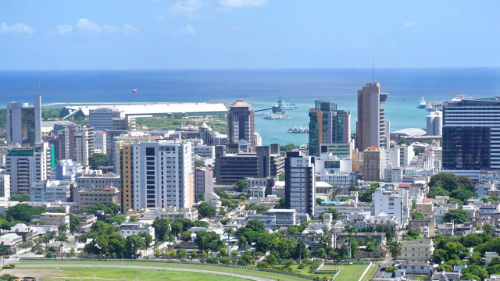Mauritius is Reinventing Itself From Tax Haven to Financial Ally

TLDR
- Mauritius, once synonymous with tax avoidance and financial secrecy, is reshaping its international image
- The island nation, blacklisted by the European Union in 2020 for enabling corporate tax evasion, has since overhauled its fiscal framework to align with OECD and EU standards
- Reforms include raising the corporate tax rate to 15%, mandating real economic activity for offshore entities, and participating in tax information exchange mechanisms
Mauritius, once synonymous with tax avoidance and financial secrecy, is reshaping its international image. The island nation, blacklisted by the European Union in 2020 for enabling corporate tax evasion, has since overhauled its fiscal framework to align with OECD and EU standards.
Reforms include raising the corporate tax rate to 15%, mandating real economic activity for offshore entities, and participating in tax information exchange mechanisms. These changes helped Mauritius exit the EU’s blacklist and forge closer ties with Brussels. In April 2025, the EU and Mauritius announced plans for a deep and comprehensive free trade agreement—the first of its kind between Europe and a sub-Saharan African country.
The transformation is also strategic. Mauritius now ranks as the second most prominent financial centre in Africa, behind only Casablanca, according to the Global Financial Centres Index. Its International Financial Centre in Port Louis is a magnet for investors targeting Africa. Mauritius Commercial Bank, an “investment-grade” institution, has positioned the IFC at the core of its pan-African growth strategy.
Daba is Africa's leading investment platform for private and public markets. Download here
Key Takeaways
While Mauritius presents itself as a reformed financial hub, critics argue that much of the change is cosmetic. The Tax Justice Network ranks it among the top 20 global tax havens, estimating that $700 million in tax revenues have been diverted from African and Asian partner states. Countries like South Africa, Kenya, and Senegal are now renegotiating bilateral tax treaties with Port Louis to limit leakage. Meanwhile, neighboring Seychelles—with similar financial structures—remains under EU scrutiny. The EU’s strategic alignment with Mauritius, while pressuring Seychelles and ignoring ongoing tax advantages in Casablanca Finance City, highlights a broader hypocrisy. Financial centers in Africa are not disappearing—they're evolving. With African markets becoming more attractive, global powers are turning a blind eye to selective financial practices in jurisdictions they view as geopolitical allies. Whether Mauritius has genuinely reformed or merely adapted to changing norms remains an open question, but for now, it is winning the diplomatic and financial rewards of playing by the new rules—at least on paper.

Next Frontier
Stay up to date on major news and events in African markets. Delivered weekly.
Pulse54
UDeep-dives into what’s old and new in Africa’s investment landscape. Delivered twice monthly.
Events
Sign up to stay informed about our regular webinars, product launches, and exhibitions.




